Korean women are often admired for their radiant, youthful skin. While their elaborate skincare routines are well-known, the foundation of their beauty lies in their diet. It's not about restrictive eating or exotic ingredients, but rather a focus on wholesome, traditional foods. If you're aiming for a radiant complexion and a youthful appearance, incorporating these five Korean diet staples could be the key.

Seaweed, often overlooked, is a powerhouse of nutrients that benefit the skin. Rich in iodine, calcium, vitamins A and C, and various minerals, it supports thyroid health, which in turn influences the condition of your skin, hair, and energy levels.
Koreans frequently consume seaweed, particularly in miyeok-guk, a savory seaweed soup. This soup is traditionally served on birthdays and to women after childbirth to aid in recovery and restore vitality.
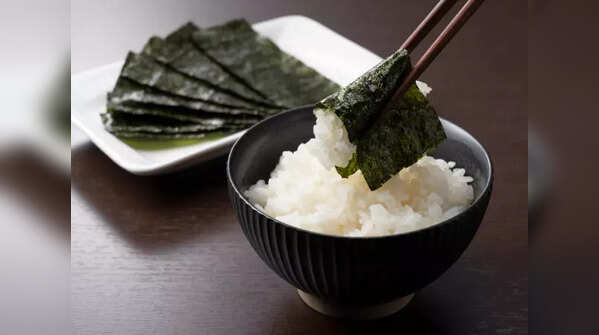
Kimchi, Korea's national dish, is made from fermented cabbage (or radish) and is packed with probiotics. A healthy gut is essential for healthy skin, and kimchi helps combat acne, dullness, and even puffiness.
The versatility of kimchi allows it to be paired with almost any dish, including rice, noodles, eggs, and toast, making it a staple in the Korean diet.
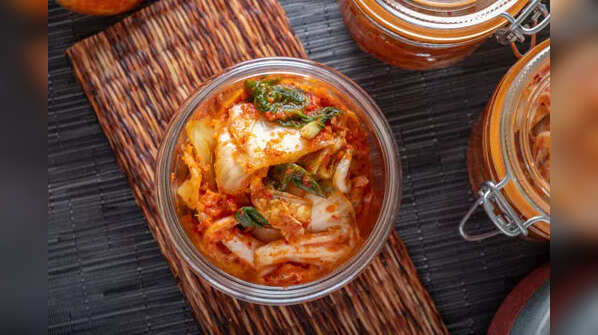
Green tea is a daily essential in Korea. Its hydrating properties, coupled with a high concentration of antioxidants, combat inflammation and free radical damage, which contribute to skin aging.
Consider replacing your afternoon coffee with a cup of green tea. Its soothing qualities and potential skin benefits make it a worthwhile swap.
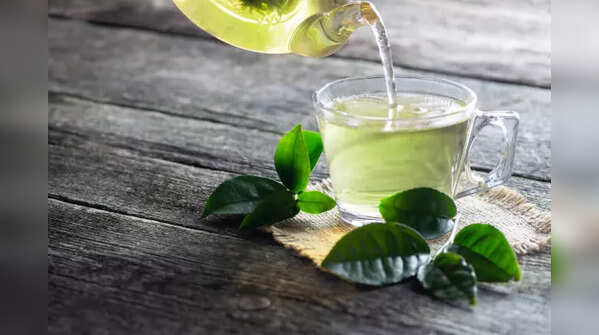
Sweet potatoes, especially popular during colder months in Korea, are prepared simply by roasting or steaming. They are a rich source of beta-carotene, which the body converts into vitamin A, a vital nutrient for skin health.
With a low glycemic index, sweet potatoes help maintain stable blood sugar levels, reducing the likelihood of breakouts. Their satisfying taste and filling nature make them an ideal snack.

Tofu is a staple that delivers plant-based protein and isoflavones, compounds that help balance hormones and boost collagen production. This results in firmer, smoother, and more elastic skin.
Tofu is featured in various Korean dishes, including soups, stews, and salads, or simply pan-fried and seasoned with soy sauce.
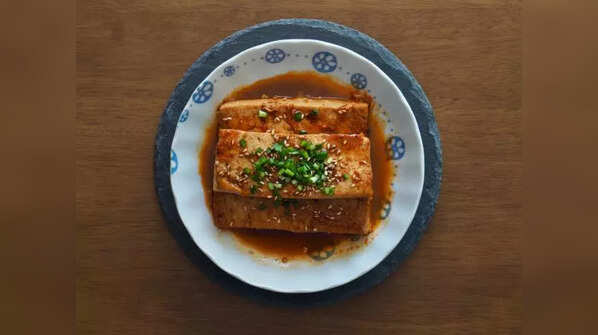
You don't need to live in Korea to adopt these eating habits. Here's a simple plan to integrate these foods into your daily meals:

Korean women prioritize clean, balanced eating habits rooted in their cultural traditions. By including these foods in your diet, you're not just enhancing your appearance but also promoting overall well-being. Expect glowing skin, stronger hair, improved digestion, and increased energy levels.

Newer articles
Older articles
 India Enters New Space Age as Astronaut Shukla Joins ISS Mission
India Enters New Space Age as Astronaut Shukla Joins ISS Mission
 X Cracks Down: Half a Million Indian Accounts Suspended for Policy Breaches
X Cracks Down: Half a Million Indian Accounts Suspended for Policy Breaches
 Google Unveils Strategy to Combat Misinformation, Boost Voter Access in India's 2024 Elections
Google Unveils Strategy to Combat Misinformation, Boost Voter Access in India's 2024 Elections
 Hair Oil vs. Hair Serum: Which is the Right Choice for Your Hair?
Alternatively:
Unlock Your Best Hair: Choosing Between Hair Oil and Serum for a Healthy Mane
Hair Oil vs. Hair Serum: Which is the Right Choice for Your Hair?
Alternatively:
Unlock Your Best Hair: Choosing Between Hair Oil and Serum for a Healthy Mane
 Bollywood's 'Swades' Anthem Joins Axiom-4 Mission: Indian Astronaut's Playlist Honors Heritage in Space
Bollywood's 'Swades' Anthem Joins Axiom-4 Mission: Indian Astronaut's Playlist Honors Heritage in Space
 Vijay Sethupathi Apologizes Amid Controversy Over Son's Film 'Phoenix'
Vijay Sethupathi Apologizes Amid Controversy Over Son's Film 'Phoenix'
 New York Assemblyman Zohran Mamdani's Style: 5 Lessons in Authenticity and Heritage
New York Assemblyman Zohran Mamdani's Style: 5 Lessons in Authenticity and Heritage
 Colon Cancer: Don't Ignore These 5 Early Warning Signs
Colon Cancer: Don't Ignore These 5 Early Warning Signs
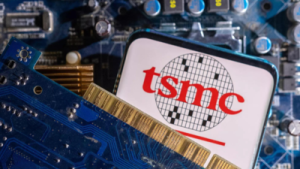 TSMC Regains Top 10 Global Value Ranking Amid AI Boom
TSMC Regains Top 10 Global Value Ranking Amid AI Boom
 Android Users Urged to Update Devices Amid High-Severity Security Flaws: Government Issues Warning
Android Users Urged to Update Devices Amid High-Severity Security Flaws: Government Issues Warning